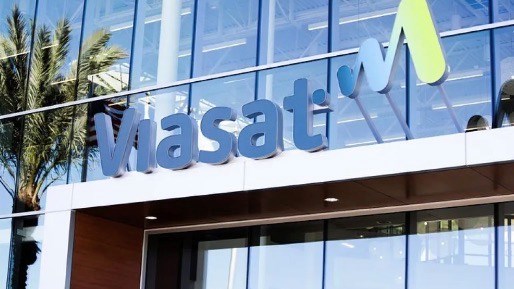
- Viasat completes its $7.3bn acquisition of Inmarsat
- China Telecom pumps major funds into quantum computing
- Orange Romania and the UK’s Sky prepare for job cuts
In today’s industry news roundup: Viasat finally swallows Inmarsat; China Telecom is the latest telco to steer R&D funds towards quantum technology; Orange Romania and Sky in the UK are preparing to cut hundreds of staff each; and much more!
It’s done and dusted! The $7.3bn acquisition of UK satellite operator Inmarsat by what was previously its US peer, Viasat, has now been completed. First unveiled in November 2021, the deal crossed the finish line today having obtained blessings from UK’s Competition and Markets Authority (CMA), the US Federal Communications Commission (FCC) and the European Commission, all within the space of a month. Once integrated, the pumped-up company’s assets are set to “increase the pace and scope of innovation in the global satellite connectivity sector,” as well as address the “ever-increasing speed, flexibility, reliability, coverage and security” required by customers, noted Viasat in its statement announcing the transaction closure. The combined entity will retain Mark Dankberg as chairman and CEO, and Guru Gowrappan as president, and its new global international business headquarters will be in London. Corporate headquarters will still be in Carlsbad, California. “We intend to move quickly to bring the best from each company together in a way that creates much deeper value for our stakeholders and ensures we deliver on our synergy commitments,” commented Gowrappan. With the move, the companies bring together spectrum, satellite and terrestrial assets, including 19 satellites in space across different bands. According to the UK’s minister of state at the Department for Science, Innovation and Technology, George Freeman, the UK space sector is “now poised for an exciting next phase,” as the combined entity creates “a global leader in satellite communications here in the UK” bringing in “significant investment” and hundreds of new jobs, while being a “catalyst for substantial economic growth.”
China Telecom has reportedly invested ¥3bn (US$422m) into the establishment of a quantum-focused technology group. According to Reuters, the Chinese operator will form the so-called China Telecom Quantum Information Technology Group to develop quantum technology, accelerate quantum product updates and promote the sector across China. The news agency cited a statement by China Telecom that claimed the move was “a practical action” to “implement the spirit” of instructions given by Xi Jinping, general secretary of the Chinese Communist Party, related to quantum technology developments. According to the report, another Chinese telco has already made strides towards the quantum era, as China Mobile partnered with Chinese start-up Origin Quantum in December 2022.
Orange Romania is cutting 551 jobs, about 20% of its staff, according to a local report from Profit.ro that cites a letter from the trade unions sent to staff. The majority of the redundancies will hit the access network technical team, which will suffer 345 job cuts, and the enterprise services team, which will lose 192 positions. At the same time, the operator is creating 125 new roles, 100 of which are in the enterprise services team, and any of the staff affected by the cuts can apply for the new roles, according to the letter. The main reasons for the headcount reduction is the ongoing loss of customers and shrinking revenues, it noted. The news comes only days after Orange announced that its CEOs in Poland and Romania would be swapping roles.
Still with headcount reductions… UK pay-TV and broadband service provider Sky, which is part of the Comcast empire and employs some 32,000 staff, is set to cut hundreds of jobs as its operating model shifts away from the installation of satellite dish technology to the delivery of TV and video streams over broadband connections, Advanced Television has reported, citing the Financial Times.
Vantage Towers has boosted its sustainability credentials with the installation of “the first wooden-structured telecommunication mast” in Germany. The so-called Ecopol tower has been built as part of a joint pilot project with Finnish start-up Ecotelligent, which will include the establishment of a second wooden mast in the country in the third quarter of 2023. The tower company claimed this move marks “the beginning of a more sustainable mobile communications industry and digitalisation” as the towers are built from recyclable wood and have a “significantly lower” carbon footprint than masts made of steel or concrete. Vantage Towers has also begun pilots to produce renewable energy directly at its tower sites with wind turbines and solar panels, and plans to replace diesel generators with hydrogen engines. Find out more.
Veon, the international operator that runs networks in Asia and Eastern Europe (including Ukraine), is in the final stages of selling its business in Russia. The initial agreement to sell Beeline (also known in Russia as VimpelCom) for about US$2.1bn was first announced in November 2022, and key regulatory approvals were granted in February this year. Now the operator says it “has submitted all necessary documentation to Euroclear, Clearstream and registrars for cancellation of Veon’s Eurobonds held by its subsidiary, PJSC VimpelCom. With this, the company enters the final stages in the closing of the sale of Veon’s Russia operations.”
- The staff, TelecomTV




